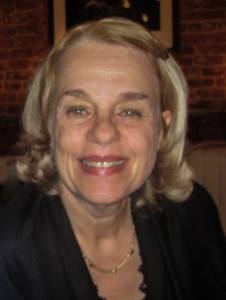If the moon smiled, she would resemble you.
You leave the same impression
Of something beautiful, but annihilating.
Both of you are great light borrowers.
Her O-mouth grieves at the world; yours is unaffected,
And your first gift is making stone out of everything.
I wake to a mausoleum; you are here,
Ticking your fingers on the marble table, looking for cigarettes,
Spiteful as a woman, but not so nervous,
And dying to say something unanswerable.
The moon, too, abuses her subjects,
But in the daytime she is ridiculous.
Your dissatisfactions, on the other hand,
Arrive through the mailslot with loving regularity,
White and blank, expansive as carbon monoxide.
No day is safe from news of you,
Walking about in Africa maybe, but thinking of me.
so much depends
upon
a red wheel
barrow
glazed with rain
water
beside the white
chickens
Dedication for a Plot of Ground
by William Carlos Williams
This plot of ground
facing the waters of this inlet
is dedicated to the living presence of
Emily Dickinson Wellcome
who was born in England; married;
lost her husband and with
her five year old son
sailed for New York in a two-master;
was driven to the Azores;
ran adrift on Fire Island shoal,
met her second husband
in a Brooklyn boarding house,
went with him to Puerto Rico
bore three more children, lost
her second husband, lived hard
for eight years in St. Thomas,
Puerto Rico, San Domingo, followed
the oldest son to New York,
lost her daughter, lost her "baby,"
seized the two boys of
the oldest son by the second marriage
mothered them—they being
motherless—fought for them
against the other grandmother
and the aunts, brought them here
summer after summer, defended
herself here against thieves,
storms, sun, fire,
against flies, against girls
that came smelling about, against
drought, against weeds, storm-tides,
neighbors, weasels that stole her chickens,
against the weakness of her own hands,
against the growing strength of
the boys, against wind, against
the stones, against trespassers,
against rents, against her own mind.
She grubbed this earth with her own hands,
domineered over this grass plot,
blackguarded her oldest son
into buying it, lived here fifteen years,
attained a final loneliness and—
If you can bring nothing to this place
but your carcass, keep out.
Two roads diverged in a yellow wood,
And sorry I could not travel both
And be one traveler, long I stood
And looked down one as far as I could
To where it bent in the undergrowth;
Then took the other, as just as fair,
And having perhaps the better claim,
Because it was grassy and wanted wear;
Though as for that the passing there
Had worn them really about the same,
And both that morning equally lay
In leaves no step had trodden black.
Oh, I kept the first for another day!
Yet knowing how way leads on to way,
I doubted if I should ever come back.
I shall be telling this with a sigh
Somewhere ages and ages hence:
Two roads diverged in a wood, and I—
I took the one less traveled by,
And that has made all the difference
Memorial: Blanche Chaiken
(March 10, 1922 - January 19, 2003)
by Ellen Halter
You found me
on the near side of childhood.
Your brow,
arched like a spade,
plunged through topsoil
to the secret garden
of my heart,
trillium running through it.
Your retinue
of nine-year olds,
sailed with you
after school,
through the projects,
its mean grid
of concrete and brick,
to the library.
Port of entry,
its bay and lagoon,
underwater dives,
we'd surfaced
late afternoon,
the sun in our eyes.
Out-of-focus,
blurred,
memory
I believe.
Ramrod as a mast,
regal as a queen,
you trod abroad,
toeing outward
away from me.
You, my dear,
interred,
bones to dust,
I can’t conceive.
Dumb to the love of the child,
deaf to the poet’s pleas,
To please,
please,
heed.
You there,
deferred,
a mirage,
I retrieve.
My shoulders squared,
my eyebrows raised,
readied to proceed.



